Animal welfare act
17.9 ANIMAL WELFARE ACT 2006
Practitioners need to have a solid understanding of the Animal Welfare Act 2006. Please note that these are regulations within the UK and if you are outside of the UK, you will need to be familiar with your own country’s animal welfare laws.
It’s important that you familiarise yourself with the Act. Details of which can be found by following the links below:
Please note: The first two links detail the Government’s full welfare description and the third link, on the RSPCA website, summarises the key points.
ANIMAL WELFARE ACT 2006
http://www.legislation.gov.uk/ukpga/2006/45/contents
http://www.legislation.gov.uk/ukpga/2006/45/pdfs/ukpga_20060045_en.pdf
https://www.rspca.org.uk/whatwedo/changingthelaw/whatwechanged/animalwelfareact
Important to note are the Five Freedoms. Animals must have:
- Freedom from hunger or thirst
By providing ready access to fresh water and a diet to maintain its full health and
vigour.
- Freedom from discomfort
By providing an appropriate environment which includes shelter and a comfortable resting area.
- Freedom from pain, injury or disease
By providing rapid diagnosis and treatment.
- Freedom to express normal behaviour
By providing sufficient space, proper facilities and company of the animal’s own
kind.
- Freedom from fear and distress
By providing conditions and treatment which avoid mental suffering.
If, while working with an animal, you discover that any one of the Five Freedoms are not being met; then you, as a Trust Practitioner can highlight this area. This can be done in a non-judgmental, educational manner.
Adhering to The Five Freedoms is essential to the effective delivery of The Trust Technique, as trust can only be built, when the animal’s basic needs are being met.
For example:
Freedoms 1-2
You would not be able to help an animal if they were hungry, thirsty or residing in an inappropriate environment.
Freedoms 3-5
Using The Trust Technique’s, core concept, Regard, can help an animal to clearly express itself and if this expression shows itself as a behaviour that needs to be healed, (for example aggression) then this can be addressed through a process of trust and Realisation Learning.
The freedom for an animal to be able to express itself, out of all the five freedoms, is possibly the one that can be neglected the most but is also the one that, through peace, patience and persistence; can be resolved easily.
NOTES


Responses